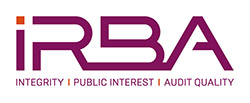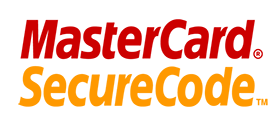Minister of Finance gazettes maximum fines for auditor improper conduct
|
Johannesburg, Monday, June 19, 2023 – The Minister of Finance, Enoch Godongwana, gazetted the maximum monetary fines for auditor improper conduct on Thursday June 15, 2023, in terms of section 51(2) and 51B(3)(b) of the Auditing Profession Act 26 of 2005 (as amended in 2021) which empower the Minister to set maximum monetary sanctions. Previously, the Act was linked to the Adjustment of Fines Act 101 of 1991 which limited the Independent Regulatory Board for Auditors (IRBA) to the imposition of maximum fines of R200 000 per charge of improper conduct. The IRBA is empowered by the Act to investigate complaints of improper conduct where registered auditors are alleged to have acted contrary to the IRBA Code of Professional Conduct or failed to correctly apply auditing standards. The 2021 amendment to the Act was intended to introduce more effective monetary sanctions which are consummate with the improper conduct. This, in response to the public criticism that monetary sanctions for improper conduct were too low to effectively deal with improper conduct. The maximum fine that may be imposed by the Enforcement Committee to an individual auditor who concludes an admission of guilt process is now set at R5-million and in the case of an audit firm the maximum fine is set at R15-million. Where the Enforcement Committee refers a matter to the Disciplinary Committee for hearing, the maximum fine the Disciplinary Committee may apply following a disciplinary hearing process is R10-million for an individual auditor or R25-million for an audit firm, where, on conclusion of the hearing process, the auditor or firm is found guilty. These monetary sanctions are applicable to all improper conduct after the date of promulgation of the Act (as amended), therefore after April 26, 2021. Says Imre Nagy, IRBA CEO: “While the IRBA welcomes the publication of the new maximum fines, it is important to note that these are maximum fine limits and not fixed. As in the past, the Enforcement Committee and the Disciplinary Committee continue to have, within their respective scopes, a variety of other sanctions which may be imposed for improper conduct, including non-monetary sanctions. The committees also continue to have the power to scale monetary sanctions in line with the seriousness of the charges, therefore not every charge of improper conduct will attract the maximum fine. “In addition, the IRBA will now finalise the implementation framework, which will ensure that relevant considerations (including proportionality) are considered prior to determining an appropriate fine.”
Ends Notes to Editors: The Notice in the Government Gazette
More about the IRBA: The IRBA is a public protection statutory body established to protect the financial interests of the public by ensuring registered auditors and their firms deliver services of the highest quality. It upholds audit firm independence to ensure that audit quality is such that it enhances the accuracy and credibility of financial performance reporting. In this way, the IRBA has an important role to play in building the reputation of South Africa as an investment market for both local and global investors and driving economic growth for the country. The IRBA also registers suitably qualified accountants as auditors, who must adhere to the highest ethics standards, and promotes the auditing profession through the effective regulation of assurance conducted in accordance with internationally recognised standards and processes.
|





